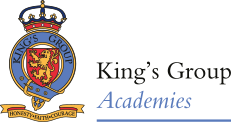Drama & Theatre
Drama is a fantastic subject that enables students to:
- increase their confidence and self-esteem
- hone their social skills and so called “soft skills” - both vital to flourish in work and life!
- develop performance skills useful in all subjects and in further study, work and life
- develop as confident performers capable of pursuing Drama at GCSE and A Level.
Drama also enables students to express their inner feelings and thoughts in a safe and nurturing environment. Drama is the basis of culture and civilisation. Drama is what inspires people to create, to stand taller, speak louder, to make a positive contribution and to feel more comfortable in their own skin.
The Drama Department at KAP is a vibrant and exciting place to be! Most students enjoy their lessons and many say it is one of their favourite subjects. I believe this is because we encourage students to be themselves and explore and develop their talents through an exciting curricular and extra curricular programme. We encourage our students to create and send their own message to the world and to help to create the future they want to see by challenging perceptions through performance.
Throughout each Key Stage, our students are taught a variety of performing and practical skills that help them build their self-confidence and hopefully develop a passion for Drama and performance.
In KS3, the students are introduced to the magical world of theatre and imagination through various programmes of study including introduction to drama, mime and movement, improvisation, physical theatre, devising, responding to various stimuli, working from script, script writing and characterisation as well as spotlighting key theatre practitioners and key periods in theatre history.
We are not expecting all students to want to become West End theatre stars or the next Dr Who. However, we do want all students to experience a measure of success and to leave KS3 with improved self confidence, literacy and performance skills.
At KS4, students apply the knowledge and skills they have developed and honed at KS3 and through extra curricular clubs in order to tackle more challenging work linked to:
- the study of a set text - both analysing this and also being able to discuss how this can be brought to life and performed in a theatre
- review of live theatre performances (including on National Theatre at Home)
- devising theatre from a range of stimulus materials
- responding in a written examination based on the above
- performing monologues and duologues to a live audience and an external examiner
- writing at greater length and in greater depth about the devising process and their final performances
These are all useful web links to explore:
GCSE Drama
Do you enjoy working with enthusiastic people and creating excellent and impactful theatre in lots of different ways?
Can you see yourself getting up in front of an audience and showing stunning, moving, hilarious or educational pieces of drama in the studio or in the main school hall?
Do you want to go and see different plays in the theatre and develop new skills through challenging sessions and workshops led by a teacher with 35 years of experience as a Drama teacher, performer and school leader?
Are you prepared to work hard and have fun at the same time? Then this course is for you!
Taking Drama for GCSE enables you to continue to develop your creating, performing and responding skills and explore a wide range of styles, themes and techniques.
You will study a wide variety of different topics, theatre techniques and skills while devising improvisations from stimuli and using scripts to create
theatre. You will learn how to develop characters and study a play from the point of view of an actor, designer, technician and director.
In order to be successful at GCSE Drama you need to:
- Be confident to perform in front of other people - or at least willing to give it a go (although your confidence will grow as the course goes on and you become more proficient)
- Be predicted at least a grade 4 in English in order to cope with the significant written element (written examination and written portfolio). I will provide lots of guidance for both
- Be prepared to work with anyone in your group whether you like them or not (including mixed gender groups)
- Be passionate about live theatre and Drama on television/film
- Be prepared to rehearse after school and/or at break times at certain times of the year
- Be creative and full of ideas for developing drama work
- Be keen to read around the set texts and to research different styles of Drama
- Not take the subject because you think it is “easy” or “because your friend is doing it” or because you think it is all going to be practical. It is 70% written and 30% practical! That said, the written work is nearly always linked to practical work.
Drama and Theatre A Level
We are hoping to introduce a Drama and/or Theatre Studies A Level again in 2025.
This is a popular and enjoyable programme of study which can lead to further study in Drama, Theatre Studies and Performing Arts and related arts and media at Degree and post graduate level.
Prospective students must have good stage, screen or vocal presence. Students must also have the ability to create believable characterisations and communicate effectively with an audience.
A good understanding of drama performance techniques and creative insight are also required.
Students should have the ability to memorise lines and having the confidence, energy and dedication to perform.
Standard entry requirements including GCSE grade 4 Maths plus grade 5 GCSE English Language and English Literature. Grade 6 in GCSE Drama is also desirable.
Mr B Slade
Head of Performing Arts
bslade@kgaprospect.uk

